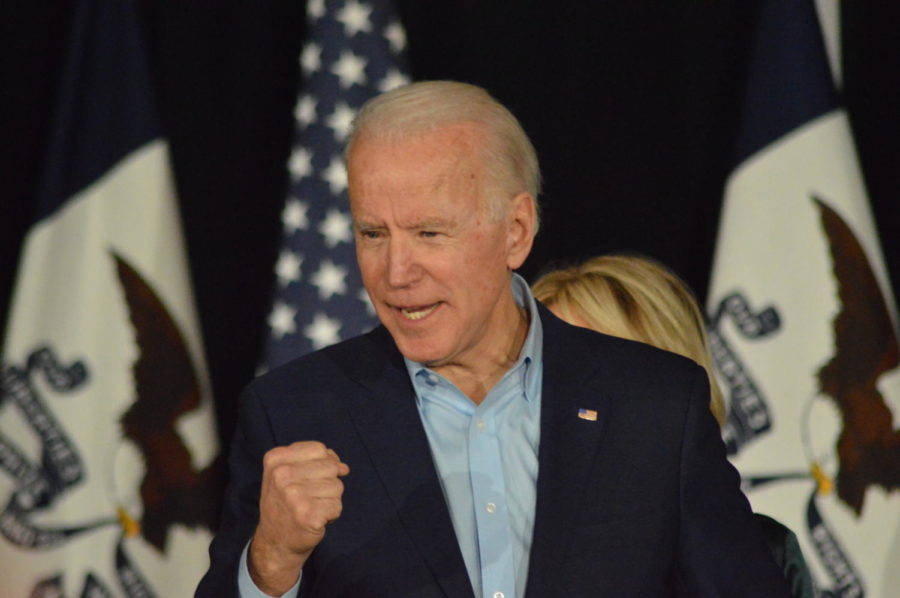Johnson: The state of the race and the party
Columnist Zach Johnson writes about how the current coronavirus pandemic could affect polling and the presidential election.
April 6, 2020
With Biden as the presumptive nominee, the party looks forward to the general election in the midst of a global pandemic.
The name of the game for Democrats in presidential election politics has been to get those demographics, which are already difficult to turnout, to go to the polls. Low income and non-white groups have historically been disenfranchised in many facets (holding elections on a work day to name one) and the effects of the novel coronavirus outbreak will only amplify these effects. The challenge the party faces is turning these voters out in the midst of this pandemic.
This pandemic may prove to be the incentive needed for distance voting to really take hold to allow for more people to gain access to the ballot more conveniently barring any other changes to the way voting works currently. One could imagine otherwise bored celebrities touting voting via mail or other non-in-person methods of voting in order to dampen the effects of civic engagement on the perpetuation of the public health crisis. If there is still need for such social distancing to be happening in the lead-up to the general election, organization surrounding these institutions will be vital to their electoral success come November.
Therein also lies the issue of attempting to frame the job that President Trump has been doing in his handling of this pandemic in the midst of it, which may become a problem for them. He has received a minor bump in polling most notably among those not registered to vote. This can be attributed to the increase in engagement among those who had only recently not been engaged with politics all of a sudden paying attention and then seeing unity and approval of the president’s job as the only positive way to view the crisis. This may be something that brings more previously untapped people from the electorate. This sort of “war time president” effect may prove to not be an issue when it comes to these potential voters who needed a pandemic to pay attention to politics to vote, but it still may cause some shifts in the public’s mood and may result in a small overall effect in the electoral outcome.
The economy has additionally been clearly affected by this public health crisis and this is especially pertinent in the context of electoral politics given that President Trump frequently cited it as his strongest issue group. It puts Democrats who think that merely taking Trump down on the economy will be easy now in a pickle as the spread of the virus can only really tangentially be entirely attributed to the president. Sure the proverbial “buck” does stop with him and personally I think his rhetoric surrounding the issue is very concerning (especially when he downplays the seriousness to save face) but, much like the economy, there are millions of facets that are not in the president’s control and this argument is a sound one that I think the right may use to combat the seemingly easy narrative of negatively attacking the incumbent on the way the economy is performing.
All in all, this election cycle will be one that people are writing books about in vast quantities given the extremely unique and grim circumstances the country currently faces.

















